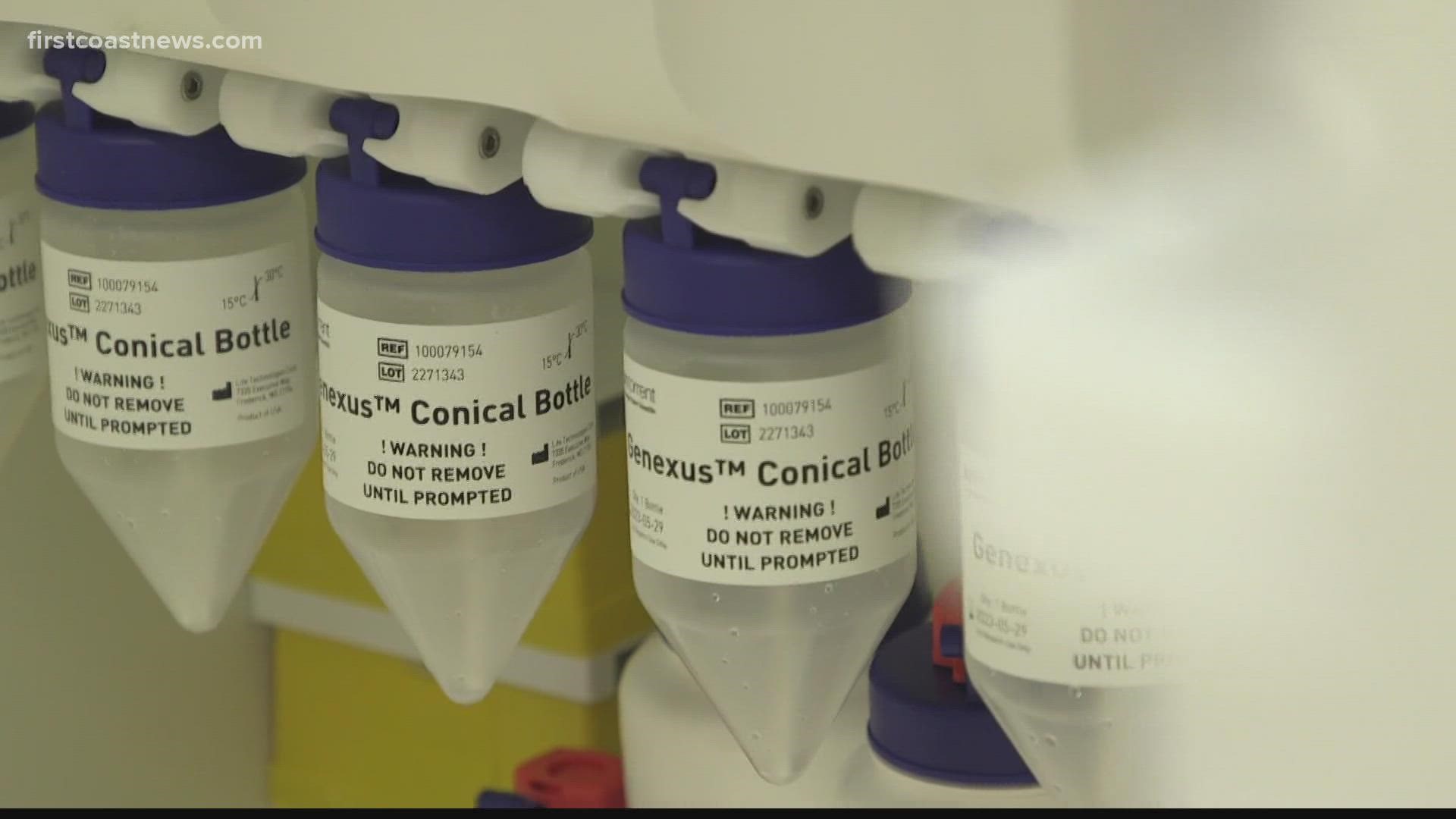Omicron now accounts for about 95 percent of COVID cases in the United States, according to the CDC. How do doctors and scientists know which variant people have, though?
At Mayo Clinic in Jacksonville, they use a special machine, Genexus, for sequencing, or analyzing the virus's genetic code. They got the machine two months ago, according to Dr. Aziza Nassar, Chair of the Department of Laboratory Medicine and Pathology at Mayo Clinic in Jacksonville.
“It was very important for us to get the instrument and also to track those for epidemiologic surveillance," she said.
“We were thinking, because of the different variants that happened in the past, we might be seeing new variants in the future. And that [Genxus] will give us some guidance, some idea of how we're going to tackle those new variants in terms of dealing with the surges hospitalization. How infectious are these? How are they going to be responsive to different available monoclonal antibodies," Nassar said.
Nassar said they use positive samples, usually from patients in the hospital, sometimes from the community.
"Most often we sequence samples that the patient have a vaccine breakthrough," she said.
It takes 26 hours to run a sample.
“In the Christmas week for example, when we sequence the samples, they were 85%, omicron, 15 percent Delta. Right after around the New Year, we have seen some 97 to 100 percent omicron prevalence right now," Nassar said.
Nassar said not only does sequencing allow them to track variants, but also their severity, how they might evade the vaccine and how contagious they are. Doctors then share this information with the local department of health and report it to the CDC.
"We're really excited that we have the instrument on site," Nassar said.
UF Health Jacksonville is also able to sequence positive COVID samples.

